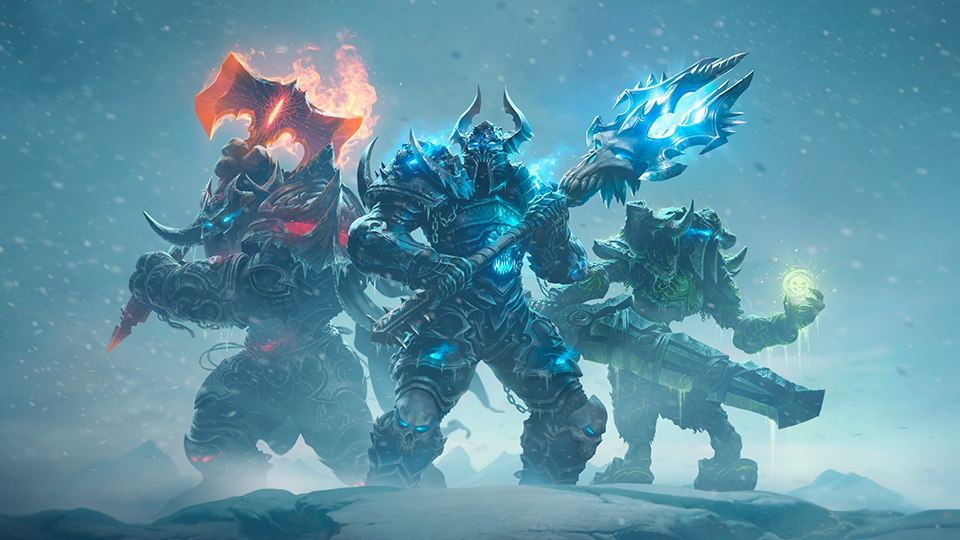In the vast, ever-evolving landscapes of Azeroth, gold has always been the universal solvent. It funds your epic gear, buys rare mounts, and even pays for a ride through the most challenging dungeons. Yet, the acquisition of this digital currency has become a surprisingly complex ethical and economic tightrope, often blurring the lines between what is permissible and what is, well, merely profitable for the right entities.
The Perilous Path: Unsanctioned Gold Acquisition
For years, a shadowy market has thrived alongside World of Warcraft`s official economy: the third-party gold sellers. These entities, often operating outside the game`s strict regulations, offer players a shortcut to wealth. Sounds tempting, doesn`t it? Blizzard, however, has consistently warned against this practice, and for good reason.
The risks associated with buying gold from unofficial sources are significant and well-documented:
- Account Security Compromise: Many third-party sellers acquire gold through compromised accounts or phishing scams, putting buyers at risk of having their own accounts targeted. It`s a digital Faustian bargain.
- Fueling Illicit Operations: These sellers frequently employ bots—automated programs that farm gold tirelessly—and often engage in account theft. Engaging with them directly supports a digital underworld that siphons resources and integrity from the game itself.
- Game Economy Disruption: Large-scale, illicit gold generation inflates prices and devalues the efforts of legitimate players who spend hours farming or crafting. It`s a cheat code that undermines the very foundation of the game`s economic simulation.
- Permanent Bans: Perhaps the most direct consequence, Blizzard’s End User License Agreement (EULA) strictly prohibits such transactions. Violators risk losing their illegally acquired gold, or worse, their entire account. A decade of progress, gone in a flash.
The Sanctioned Solution: Blizzard`s WoW Token
Amidst this cautionary tale, Blizzard introduced its own, distinctly official alternative in 2015: the WoW Token. This ingenious mechanism allows players to convert real-world money into in-game gold, or vice-versa. You buy a token directly from Blizzard for a set price, then sell it on the in-game Auction House for the current market price in gold. Alternatively, a player can buy a token with gold from the Auction House and redeem it for 30 days of game time or Battle.net balance. It`s a system designed to circumvent the risks of third-party RMT (Real Money Trading) by bringing it under Blizzard’s direct purview.
It’s a remarkably elegant solution on paper: a safe, authorized bridge between real-world currency and virtual wealth. A toll road, if you will, but one that is well-maintained and seemingly legitimate.
The Golden Controversy: Is Official Gold Buying Fair Play?
While the WoW Token offers a “safe” path, it has been a consistent source of contention within the World of Warcraft community. The primary grievances include:
- The “Pay-to-Win” Specter: If money doesn`t buy happiness, in Azeroth, it certainly buys power. With unlimited gold, players can purchase the best gear, rare mounts, or even pay other players (known as “carries”) to complete challenging content, effectively bypassing the traditional gameplay loop. Critics argue this system allows those with deeper pockets to gain significant advantages, undermining the game`s competitive integrity. While Blizzard isn`t selling power directly, they are enabling its acquisition through a roundabout, monetary means.
- Uneven Access: Despite being Blizzard`s sanctioned method, the WoW Token isn`t universally available. Players in certain regions (like Brazil, as highlighted by community feedback) or those who prefer specific versions of the game (such as WoW Classic, which doesn`t support the Token) find themselves unable to participate in this official economy. Blizzard`s recent public service announcement, while well-intentioned, came across as tone-deaf to these segments of the player base, effectively telling them to use a service they cannot access.
- Perceived Hypocrisy: For many players, Blizzard`s stance feels like a double standard. On one hand, they strongly condemn third-party RMT for disrupting the game and supporting illicit activities. On the other, they offer their own, legally sanctioned version of RMT. Is it a principled stand against illicit trade, or simply a strategic move to consolidate the virtual gold market under their own banner? This question fuels much of the community`s frustration.
Blizzard`s Ongoing Battle and the Player`s Dilemma
It`s important to acknowledge that Blizzard does actively combat illicit activities. In 2023 alone, they banned 120,000 “malicious accounts” involved in botting in WoW Classic and routinely ban tens of thousands more each week. These efforts demonstrate a commitment to maintaining a fair environment, but they exist in parallel with the very system that legitimizes gold buying.
The debate surrounding the WoW Token underscores a fundamental tension in modern online gaming: the desire for an authentic, skill-based experience versus the undeniable convenience of commercialization. As Azeroth`s adventurers ponder their next quest, a more profound question lingers: What price true virtue in a virtual world where even the most basic currency has a real-world exchange rate?
Ultimately, the choice remains with the players: navigate the perilous, unsanctioned shadows, or pay the official toll. But in a game where gold can buy almost anything, the “golden rule” of acquisition remains stubbornly subjective.

